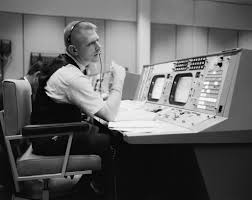 Be the person you want others to be. This is easy to say but hard to do. Whether we like it or not, in the professional world we are constantly on stage in plain view of people around us. Whether it is the people we work with, work for, or customers we serve, we are always being observed and judged—in person, on the phone, or through written communications. We are constantly being viewed, whether face to face, in conference calls, video conference calls, or just walking down the hall.
Be the person you want others to be. This is easy to say but hard to do. Whether we like it or not, in the professional world we are constantly on stage in plain view of people around us. Whether it is the people we work with, work for, or customers we serve, we are always being observed and judged—in person, on the phone, or through written communications. We are constantly being viewed, whether face to face, in conference calls, video conference calls, or just walking down the hall.
Observers are making judgments constantly, and we are being labeled with an ongoing reputation, good or bad, every day. There is a laundry list of people with reputations in any office, and we have probably worked with them all at one point or another. In some cases, I know I’ve made my own uninformed observations and judgments of others.
Every company has one of the following: the complainer; the individual who refuses to work unless given A to Z instructions; the person who freezes under pressure; the one too good to associate with others; the one only in it for himself, and at least one overly competitive team member. The list can go on and on, but you get the point. Reputations and judgments can be made quickly and are tough to get rid of. There are traits and personalities that only add to the intensity of the reputations that bubble to the top. In any case, you are constantly being looked at and judged in the eyes of your peers and colleagues.
When our corporate culture was a little looser with expenses and entertainment, we had month-long events in one of our departments. We had contests and practical jokes, all in the supposed context of fun and employee satisfaction. Points could be accumulated as part of the team competition through practical jokes. The event culminated in a festive sports outing during which we went outside to release some tension and have some fun. I was constantly reminded by my manager that it was “supposed to” be fun. I say “supposed to” because over the years of this annual event, the practical jokes got more intense as teams tried to outdo each other. Besides the risk of injury, there was a higher likelihood of risk to reputations if you were a target. The atmosphere began to get a cliquish feel to it, like the days of junior high and high school. The leadership encouraged it. As a manager, I was told to play along.
I like to have fun as much as the next person, but felt the intensity was reaching a level that was pushing the line of professional boundaries. As soon as I had this feeling, I could have done something. There were several examples I could have set. I could have had a long conversation with the leaders who condoned this and clearly stated what was on my mind. I could have reacted better to the jokes that were being played on me. I could have realized nobody was getting hurt and subsequently could have made it more of a team effort.
There were times I felt that I was individually being targeted, which only exacerbated the issue, pushing the jokes to see how much further our competitors could get under my skin. I would come in as early as possible to rid my office of whatever was in it or done to it. In the month-long event, I had a reputation for overreacting to the practical jokes, and I inadvertently created a game in which the other teams would see how much they had to do to keep me from cleaning up their practical jokes before everyone came into work that day. This caused stress personally and created a divide in an event that was originally intended for the cohesion of the collective group. What kind of example was I setting?
I should have shown more maturity, gotten the right people involved, and set the example. I could have gathered the opinions of the team and determined how they wanted to handle the entire event. If we had talked through it, we may have even found that no one wanted to do any of it, but felt the peer pressure to keep it going. I had the opportunity to set the right example but never chose to take it.
Unfortunately, some of the events brought Human Resources into the picture that forced a long conversation with me. I had a chance to state all of my points. It was not easy or comfortable. However, it felt right. I wish I had set the example and not waited for HR to intervene. Although I moved on to another area the next year, the event was significantly toned down, and the pressure to find the next great practical joke was gone. Instead, it was back to good old-fashioned office fun, with competitions and food. By the way, you can never go wrong in making people happy with food.
Thomas B. Dowd III’s books available in softcover, eBook, and audiobook (From Fear to Success only):
- Now What? The Ultimate Graduation Gift for Professional Success
- Time Management Manifesto: Expert Strategies to Create an Effective Work/Life Balance
- Displacement Day: When My Job was Looking for a Job…A Reference Guide to Finding Work
- The Transformation of a Doubting Thomas: Growing from a Cynic to a Professional in the Corporate World
- From Fear to Success: A Practical Public-speaking Guide received the Gold Medal at the 2013 Axiom Business Book Awards in Business Reference
- The Unofficial Guide to Fatherhood
See “Products” for details on www.transformationtom.com. Book, eBook, and audiobook (From Fear to Success only) purchase options are also available on Amazon- Please click the link to be re-directed: Amazon.com









